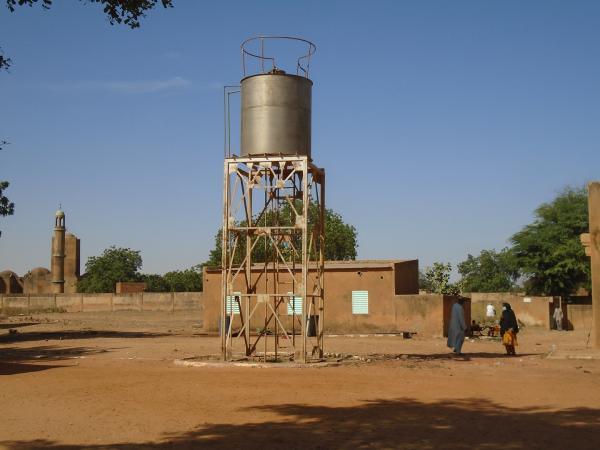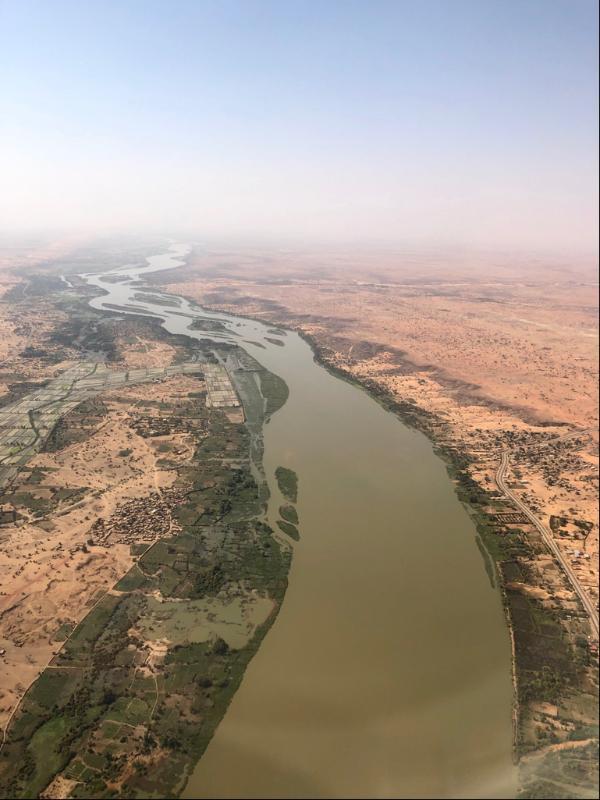Special fund from the EU and Dutch government targets chronic water shortage in Niger to improve health and prevent radicalisation
By Yusuf Yassin
Improving the water supply in Niger’s western border region is a perilous task. Militants have been active in the area for years and violence is common along the frontier with Mali and Burkina Faso. Site visits by water experts are limited and must be made under the protection of the army.
But Niger needs help to improve its water supply. The availability of clean drinking water is low by global standards, with large disparities between urban and rural areas. Niger ranks near the bottom in the United Nations Human Development Index. Many areas are threatened by drought and desertification. Clean water is, of course, a necessity for healthy societies and economies. In the Tillabéri region near the western border, 92% of the population lives in rural areas and there is a chronic shortage of clean water, especially during the hot season when temperatures often rise above 40 degrees Celsius.
The European Investment Bank is working with the Niger water authority to find solutions for these problems, backed by a donor fund supported by the Dutch government. Niger is one of 18 countries in sub-Saharan Africa on the World Bank’s list of fragile regions. The EU bank has a long record of investing in such regions.
“Addressing fragility requires urgent investment in the most basic infrastructure services,” says Cristina Mejia García, a European Investment Bank loan officer overseeing projects in Niger. “Supplying clean water to societies and economies can make them more resilient and safe.”
A necessity for development in fragile regions
There’s no time to lose. Niger’s water needs are pressing now. And it’s only going to get worse.
In Téra, a city northwest of the country’s capital of Niamey and close to the border with Burkina Faso, only 40% of the 30,000 residents are connected to a functioning public water system. In 2018, Niger’s water authority, Société de Patrimoine des Eaux du Niger (SPEN), opened 10 boreholes and installed a water treatment plant to supply Téra and nearby areas with potable water. Almost a year later, the water source dried up and the water treatment plant was forced to close.
The water authority needs a ten-fold increase in clean water provisions over the next 20 years just to keep up with Téra’s rapidly growing population. “The goal is to find a definitive solution to the city’s water problems and provide water to nearby villages,” says Amadou Mamadou Sekou, managing director of SPEN.

Niger water development
It isn’t just a matter of health, either. Access to basic water services can help stabilise the political and security situation in Niger and reduce the number of people moving to Niamey or within the region. Bottom line: it can reduce violence. “Economic and social development in the Tillabéri region will help prevent radicalisation in a high-priority area for the government of Niger and the EU,” says Cristina.
The European Investment Bank and the Niger water authority are exploring two solutions to address the water shortages in Téra. The first option is to rehabilitate the water reservoir outside the city. A second option is to treat and convey water from the Niger River, over 100 kilometres to the east. This would also supply water to villages between Téra and the Niger River. The Bank will also explore using solar energy to reduce operational costs.
Donor funds for Niger water development
The European Investment Bank’s Water Sector Fund, which is supported by the Dutch government, is financing a study to identify which is the most sustainable technical solution. Karin Roelofs, head of the Water Division in the Dutch Foreign Ministry, says providing access to drinking water in countries like Niger is a priority for her team.
“Investment in local infrastructure is needed to secure water supplies to secondary cities like Téra,” Roelofs says. “By working with the EIB through the Water Sector Fund, we are able to link such priorities to the EIB’s financial and technical capacities.”

In developing countries, there is often a shortage of funding for studies to identify projects that could be financed successfully. The Water Sector Fund supports early-stage preparation, so that critical water projects, such as the one in Téra, can be planned correctly and qualify for the financing they need.
The fund is part of the European Investment Bank’s “donor partnerships.” It was set up in 2018 with the Dutch government, but it is open for contributions from other countries and organisations.
Trust fund projects, often done with EU countries, involve a partner placing a donation in a trust fund managed by the European Investment Bank. The Bank then uses this money to help regions in need around the world by providing grants, loan guarantees and technical assistance in dozens of developing countries.
The European Investment Bank manages nine trust funds financed by EU countries, the European Commission and the United Kingdom. We hope to expand these funds to include other governments, philanthropists and foundations. By working with more partners, we create a better world.